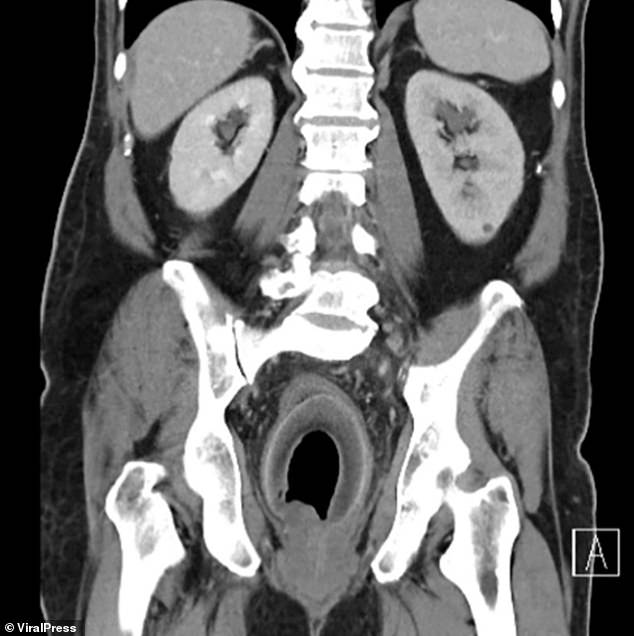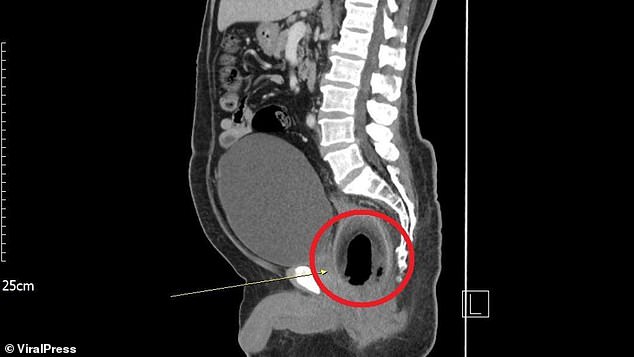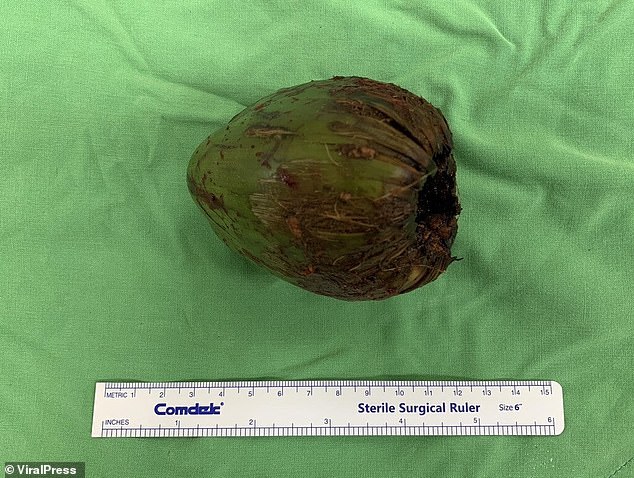- The constipated 56-year-old waited two days before seeking medical attention
- In the UK retrieving objects from the rectum costs the NHS £340,000 a year
A Taiwanese man who shoved a coconut into his rectum needed to get it yanked out by surgeons.
The constipated 56-year-old, who wasn’t named, waited two days before seeking medical attention.
But he did not confess how or why he used the fruit in the first place.
Writing in the British Journal of Surgery, medics claimed he had been unable to urinate and complained of severe abdominal pain.
Upon examination CT scans showed the fruit was lodged in his rectum compressing the urethra and preventing him from urinating.

The constipated 56-year-old, who wasn’t named, waited two days before seeking medical attention

Writing in the British Journal of Surgery , medics claimed he had been unable to urinate and complained of severe abdominal pain. Upon examination CT scans showed the fruit was lodged in his rectum compressing the urethra and preventing him from urinating

The date of the incident was not revealed in the case report by medics at E-Da Hospital in Kaohsiung City, located in the south of the country. The coconut, measuring 9cm in length, was then extracted via laparotomy — an operation that involves opening the abdomen

A 2021 study by The Royal College of Surgeons of England, found the incidence of objects having to be removed from rectums by the NHS is on the rise. Cases were growing particularly quickly among men
The date of the incident was not revealed in the case report by medics at E-Da Hospital in Kaohsiung City, located in the south of the country.
The coconut, measuring 9cm in length, was then extracted via laparotomy — an operation that involves opening the abdomen.
Medics did not reveal when the man was discharged.
Laparotomy procedures, however, often involve a hospital stay of up to five days and a recovery period of between six to eight weeks, according to the NHS.
Retrieving objects stuck in the rectum was first logged in medical literature back in the 16th century.
As well as corks, other objects reportedly recovered from vaginas by medics over the years include plastic aerosol caps, a plastic cup and even a child’s toy.
NHS doctors are no stranger to dealing with similar incidents, with data analysis last year finding about 400 ‘foreign’ objects are pulled from English anuses each year.
This was estimated to cost the taxpayer roughly £340,000 a year for things like drugs for performing procedures, and the manpower of NHS staff.
But the insertion of objects into a rectum, also known as anal play, carries a number of risks.
As well as getting stuck objects, they can also potentially perforate the bowel which can be deadly as material from the digestive tract can spill into other parts of the body, causing an infection.









